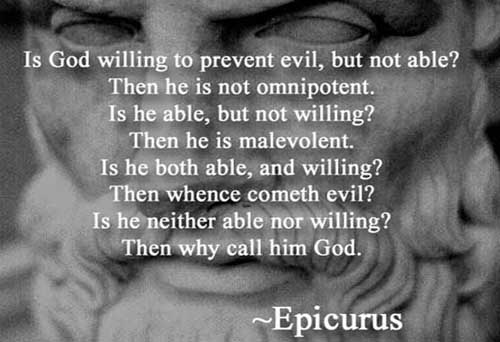Mind Over Matter
Registered Senior Member
Taken from Sticky: Definitions: Theism, Atheism, Agnosticism thread.
The definition of atheism is incorrect because it also encompasses what is properly called agnosticism. An athiest cannot admit the possibility that there is a god. If they agree to that possibility, but simply claim that it cannot be proven, they are in fact not atheists at all, but rather agnostics.
Atheism is the belief that there is no God.
Agnosticism is the belief that the existence of God cannot be known or proven. (Some people will consider themselves Agnostics even if they think it might be possible to prove, but they personally have not seen the proof yet.)
Both definitions are incorrect to some degree. What you quoted form Huxley is not unique to Agnosticism in anyway, and indeed represents a Catholic view of Philosophy (provided allowance is made for first principles).Atheism
Atheism is fundamentally a reaction to theism and is overwhelming expressed as a disbelief of theist claims. Atheist opinions will vary from absolute certainty that gods do not exist through various degrees of uncertainty to simple skepticsm. Typically when asked, an atheist will say they do not believe in the existence of gods. Many atheists will leave open the possibility that gods might exist providing appropriate evidence is provided.
Agnosticism
The definition offered here is taken directly from the words of Thomas Henry Huxley who is credited with inventing the term in the 1870s, and it is his intent and rationale that I believe should form the authoritative meaning of the term.
"Agnosticism is not a creed but a method, the essence of which lies in the vigorous application of a single principle ...Positively the principle may be expressed as in matters of intellect, do not pretend conclusions are certain that are not demonstrated or demonstrable. This principle may be stated in various ways, but they all amount to this: that it is wrong for a man to say he is certain of the objective truth of a proposition unless he can produce evidence which logically justifies that certainty. That is what agnosticism asserts and, in my opinion, is all that is essential to agnosticism."
If you wish to debate any of these terms then please create a specific thread for that purpose.
The definition of atheism is incorrect because it also encompasses what is properly called agnosticism. An athiest cannot admit the possibility that there is a god. If they agree to that possibility, but simply claim that it cannot be proven, they are in fact not atheists at all, but rather agnostics.
Atheism is the belief that there is no God.
Agnosticism is the belief that the existence of God cannot be known or proven. (Some people will consider themselves Agnostics even if they think it might be possible to prove, but they personally have not seen the proof yet.)




